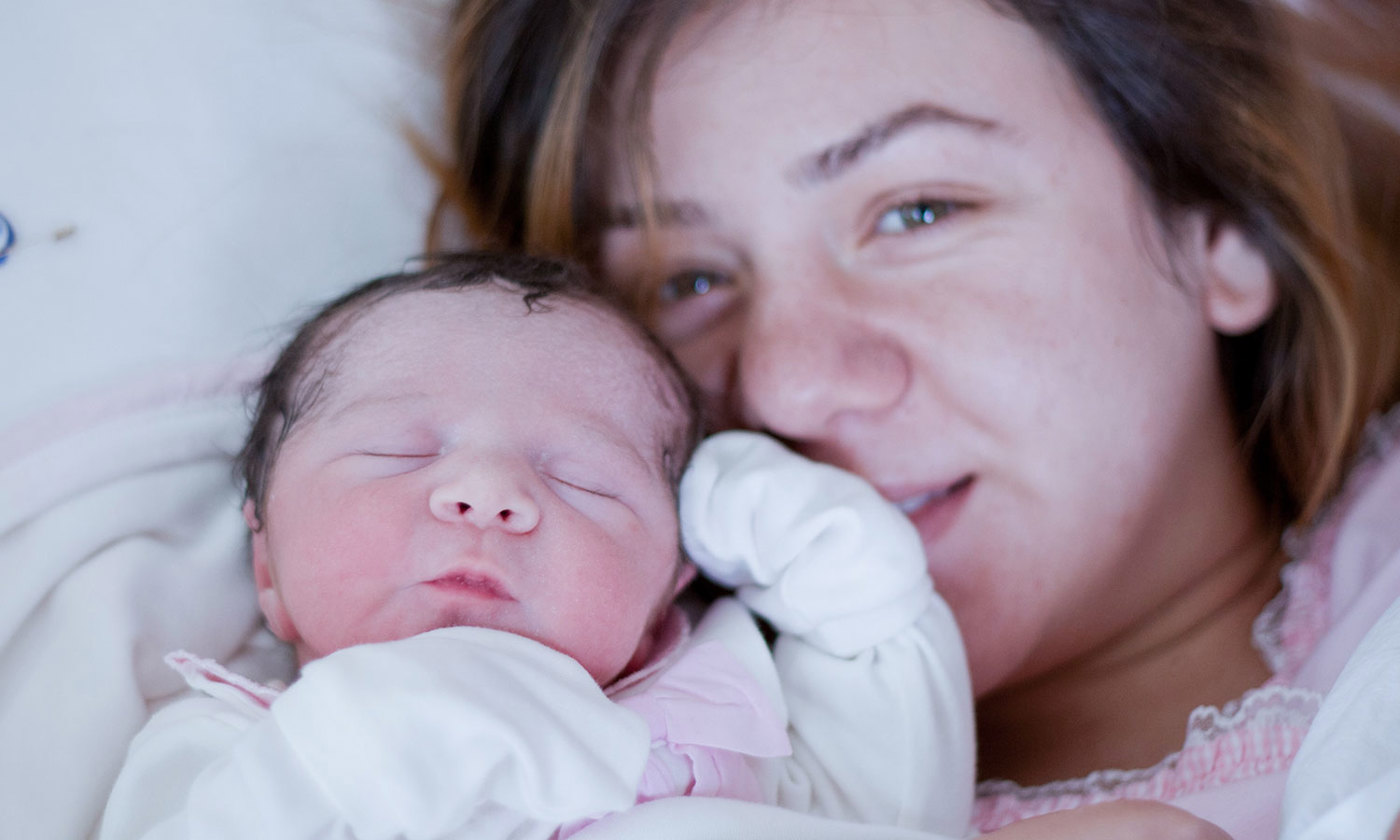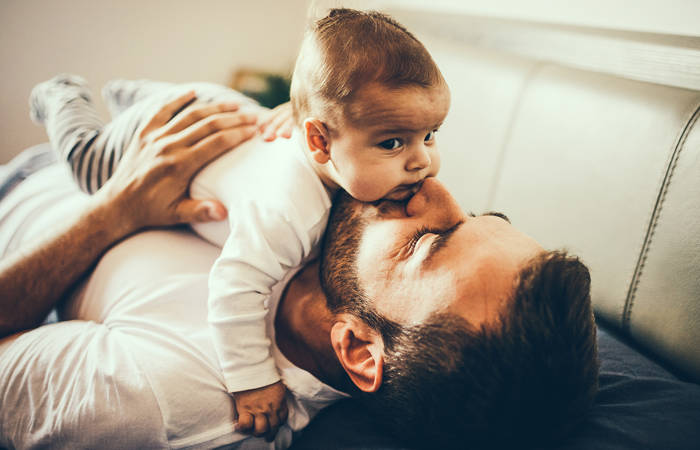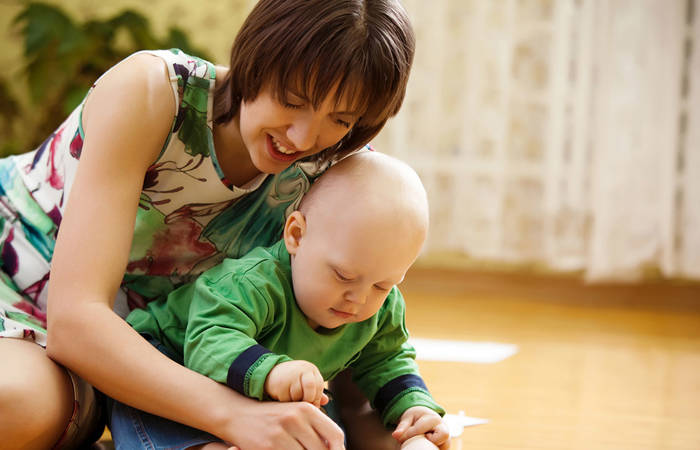Like what you see?
Sign up to receive more free parenting advice.
Thank you for subscribing to our newsletter!
Lifestyle

Credit: iStock.com/mustafagull
Meet Grace. It’s been a few hours since she’s given birth. She’s lying alone in her hospital room with her newborn sleeping in their bassinet at arm’s reach. She’s sore, tired and battling the hormones raging inside of her.
The door flings open to overjoyed and over excited grandparents who rush in, by-pass her, and coo over the sleeping newborn. It’s a full five minutes before someone looks up at her, says something about how the newborn definitely takes after their side of the family and then returns their attention to the baby.
Meet Sue. Today’s a good day. She has managed to shower, wash her hair and blowdry it. She’s wearing something other than pyjamas, she’s tidied the house and the kettle is boiled. Her friends, who she hasn’t seen since giving birth four weeks ago, are finally coming over.
When they come in, they fleetingly say that being a mum suits her before turning their attention on who gets newborn cuddles first. They ask Sue how her baby is feeding and sleeping. They offer advice. Not once do they ask Sue a question that doesn’t involve the baby.
New mothers can feel invisible
It's no wonder some new mothers can feel invisible.
“Around the time of birth, and the following early months, there is a big focus on the baby, after all there has been nine months of anticipation,” explains Dr Nicole Highet, Founder and Executive Director of Centre of Perinatal Excellence (COPE).
“At the same time, a new mother is going through a big change in her identity which usually starts during pregnancy.
“She goes from being a woman to being a mother with a whole new focus.
“Her priorities change, the demands being placed on her change, everything changes.
“It is a time when she needs support and understanding, yet everyone’s attention is on the newborn.
“You can really understand why a new mother might say that she feels invisible with everyone’s attention on the baby and her needs going further and further down the list.”
Dr Highet says that the feeling of invisibility is more common with first children, particularly if the child is also a first grandchild.
The trend to have children later in life can sometimes amplify the problem.
Before starting a family, many women tend to develop a strong identity linked to their career.
“Integrating that identity into being a stay-at-home mother can often be quite conflicting,” says Dr Highet.
“When all of their focus has been on their career, there can be a sense of grief and loss of the life they had, not just on the day-to-day, but also the identity they had before the birth of their child.
“For women, you definitely give up a part of you when you start a family, at least for part of the time, and with that comes that sense of loss of that person that you were or those priorities that you used to have.”
For women, you definitely give up a part of you when you start a family, at least for part of the time, and with that comes that sense of loss of that person that you were or those priorities that you used to have.Dr Nicole Highet
Stay up to date with the latest news and articles from First Five Years
Thank you for subscribing to our newsletter!
Dads can feel lost too
Fathers aren’t immune from the cloak of invisibility.
“Fathers often describe how, not only do they feel invisible to their family and friends because all the focus is on the baby, but how they feel invisible in relation to their relationship with their partner,” explains Dr Highet.
“The baby becomes the main priority in the mother’s life, so fathers can feel quite relegated.”
She adds that, at the same time, fathers feel a real pressure to be more actively involved and hands-on in parenting.
However, some new mothers can feel they are better equipped to care for the baby and that can add tension within the relationship.
“Not all new fathers have role models on how to be active and engaged parents because it wasn’t expected of their own father,” adds Dr Highet.
Parent expectations versus reality
“Many women expect pregnancy and new motherhood to be an absolutely wonderful time and the reality is often far from that for a lot them,” says Dr Highet.
She says that the problem occurs when women don’t feel they can openly talk about what they are going through out of fear that they will be judged.
“This is why new motherhood is such a vulnerable time,” she emphasises.
Dr Highet recommends that women consider what support mechanisms they can put in place while they are pregnant.
“It’s all about prevention,” she adds.
Dr Highet recommends women sign up to Ready to COPE.
“It’s really a guide where we talk about managing your expectations of pregnancy and early parenthood and being proactive in building your support network.”
She also recommends being aware of the common signs of stress, anxiety and depression.
For women who have experienced any of these, she says that is it useful for them to reflect and think of the signs and symptoms they previously experienced.
“It is important to get on top of mental health issues early, instead of waiting until you hit that crisis point,” she adds.
“In pregnancy and during the post-natal period, it’s very easy to put those feelings down to just being hormonal or just being tired, but we know from our own research that 74 per cent of mothers who experienced anxiety or depression didn’t reach out for support until they reached crisis point.”
Dr Highet recommends for new mothers to build their village.
“The Mama Tribe is an online mother-led community of over 50,000 members and over 40 locations across Australia,” she explains.
“We really encourage mothers to find their tribe during pregnancy, and each Mama Tribe has their own ambassador who has been trained in emotional and mental health to provide support to new mothers.”
She adds that having good relationships with health professionals, like having a GP that you trust, can be greatly beneficial.
Finally, she recommends keeping an eye on other new mothers.
“If there is someone in your parent group that, for example, suddenly stops attending and becomes withdrawn, these can be signs that they might be struggling to cope.
“It’s important to be proactive, people often worry about what others might think about them if they find out that they’re struggling with any aspect of new motherhood, so it’s important to reach out if you think someone needs helps.”






